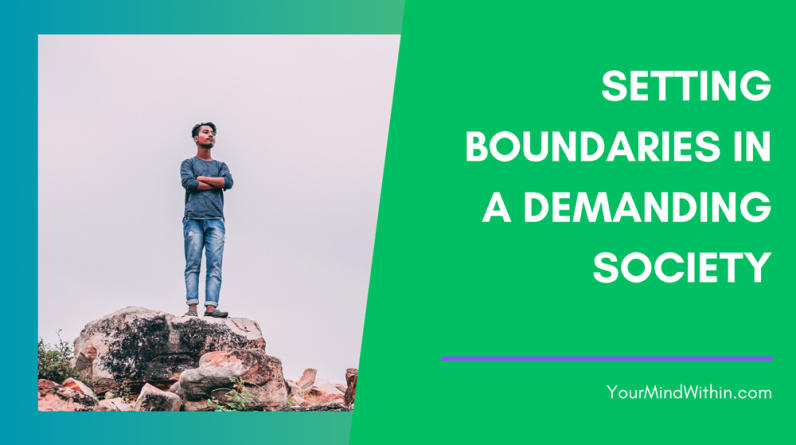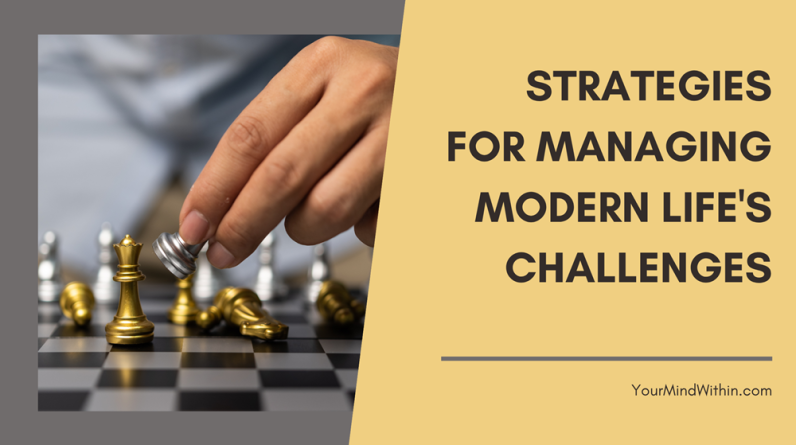

In this article you will learn how your brain responds to perceived threats and how fear can hold you back from living the life you want. You will learn how avoiding situations that make you anxious, actually reinforces that fear and makes it stronger over time.
However, by retraining your brain and facing your fears head-on, you can diminish the intensity of the fear response and expand your world. Through personal anecdotes and practical exercises, the article shows you how to overcome fear and live a more courageous and fulfilling life. Get ready to step out of your comfort zone and embrace the possibilities that lie on the other side of fear.
Retraining Your Brain
Recognizing Fear and Its Effects
Fear is a natural human response that often helps protect us from potential danger. However, fear can also hold us back and prevent us from reaching our full potential. Recognizing fear and understanding its effects is the first step in retraining your brain to overcome it.
Understanding the Brain’s Response to Fear
When faced with a perceived threat, the brain goes into fight-or-flight mode. This response is helpful in situations where there is an actual physical danger, such as encountering a grizzly bear. However, in situations where the threat is less biologically adaptive, such as the fear of being judged or teased, the brain can still trigger the fight-or-flight response.
The Power of Repeated Actions
Repeated actions have a profound impact on the brain. When we engage in activities that make us feel afraid but are not actually dangerous, we can retrain the brain to recognize that there is no real threat. By consistently facing our fears and taking action despite them, we can gradually lessen the intensity of the fear response.
Choosing to Act Despite Fear
It is important to make a conscious decision to act despite fear. Waiting for fear to go away or for the perfect moment to take action will only prolong the fear and limit our ability to grow. By choosing to act before we feel ready or comfortable, we can break free from fear’s grip and start expanding our comfort zone.
Expanding Your Comfort Zone
Expanding your comfort zone is essential for personal growth and overcoming fear. By gradually exposing yourself to situations that make you uncomfortable, you can desensitize yourself to the fear response. Pushing yourself beyond your current limits and seeking new experiences will help you build resilience and gain confidence in your ability to navigate unfamiliar territory.
Unlearning Fear and Changing the Brain’s Response
Through consistent practice and repetition, it is possible to unlearn fear and change the brain’s response. By actively choosing to face your fears, you can rewire neural pathways and create new associations with previously fear-inducing situations. Over time, the fear response will become less intense or even disappear completely.
Facing Your Specific Fears
Identifying Your Specific Fears
To overcome fear, it is important to first identify the specific fears that are holding you back. Whether it’s the fear of failure, the fear of rejection, or the fear of the unknown, understanding your specific fears will allow you to address them directly.
Analyzing the Potential Negative Outcomes
Fear often stems from imagining negative outcomes. By analyzing these potential negative outcomes and questioning their validity, you can begin to challenge the fears that are holding you back. Ask yourself what is the worst that could happen and if those potential outcomes are truly as catastrophic as they seem.
Exploring the Root of Your Fears
Digging deeper into the root causes of your fears can provide valuable insights and help you better understand why certain fears have such a strong grip on you. Reflect on past experiences, childhood traumas, or societal influences that may have contributed to the development of your fears.
Understanding the Beliefs You Hold about Yourself
Fear is often rooted in self-doubt and negative self-beliefs. Take time to examine the beliefs you hold about yourself and consider whether they are serving you or holding you back. Challenging these beliefs and replacing them with empowering and positive ones can help you overcome fear.
Recognizing How Fear Limits You
Fear has a way of keeping us stuck and preventing us from pursuing our dreams and goals. By recognizing how fear is limiting you, you can begin to take the necessary steps to break free from its constraints. Awareness is the first step towards change.
Reimagining Your Self-Beliefs and Overcoming Fear
To overcome specific fears, it is important to reimagine your self-beliefs and cultivate a mindset of growth and resilience. Replace self-limiting beliefs with empowering ones and remind yourself that you are capable of overcoming any challenge or obstacle. With practice and perseverance, you can overcome your specific fears and achieve personal growth.
Exploring Fear in Different Contexts
Facing Fear in Social Situations
Social anxiety can be a common fear that holds many people back from fully engaging in social situations. By gradually exposing yourself to social settings and practicing social skills, you can build confidence and overcome the fear of judgment or rejection.
Overcoming Fear in Romantic Relationships
Fear can also manifest in romantic relationships, leading to fears of intimacy, vulnerability, or heartbreak. By addressing these fears and cultivating open communication with your partner, you can create a safe and secure relationship environment that allows both individuals to grow and thrive.
Conquering Fear in Career and Job Transitions
Career and job transitions often come with a certain level of fear and uncertainty. By embracing change and viewing it as an opportunity for growth and new experiences, you can overcome the fear of the unknown and pursue career paths that align with your passions and values.
Expanding Your Horizons through Travel and New Experiences
Fear of the unknown can also limit our ability to explore new places and cultures. By stepping outside of your comfort zone and immersing yourself in new experiences, you can broaden your horizons, gain a deeper understanding of different cultures, and overcome the fear of unfamiliarity.
Building Confidence through Personal Development
Fear can often stem from a lack of confidence in oneself. Engaging in personal development activities such as self-reflection, goal-setting, and skills-building can help boost self-confidence and create a strong foundation for overcoming fear in various areas of life.
Learning from Others’ Experiences
Gaining Inspiration from Success Stories
Reading or listening to success stories of individuals who have overcome fear can provide inspiration and motivation. Learning from others who have faced similar challenges can help you see that it is possible to overcome your own fears and achieve personal growth.
Finding Motivation in Role Models
Identifying role models who have demonstrated fearlessness in the face of adversity can be a source of motivation. Whether it’s a historical figure, a celebrity, or someone you know personally, observing the courage and resilience of others can inspire you to push through your own fears.
Understanding Others’ Perspectives on Fear
By seeking out books, articles, or discussions about fear and its effects, you can gain a better understanding of how fear manifests in different individuals. This can help you develop empathy and compassion for others’ struggles with fear and provide insights into how to overcome your own fears.
Learning from Personal Development Experts
Personal development experts often offer valuable insights, strategies, and techniques for overcoming fear. Exploring the works of experts in the field can provide guidance and support as you navigate your own journey towards fearlessness.
Seeking Support and Encouragement
Surrounding yourself with a supportive and encouraging network of friends, family, or mentors can make a significant difference in your ability to overcome fear. Seeking support from others who have your best interests at heart can provide the necessary motivation and accountability to face your fears head-on.
Understanding the Nature of Fear
Recognizing Fear as a Survival Mechanism
Fear is an innate survival mechanism that has evolved over millions of years to protect us from potential threats. Understanding that fear is a natural response can help normalize the experience and reduce the stigma often associated with fear.
Differentiating Between Real and Perceived Threats
It is important to differentiate between real and perceived threats. While the brain may interpret certain situations as dangerous, it is often an overreaction based on past experiences or irrational beliefs. By critically assessing the validity of perceived threats, you can prevent fear from holding you back unnecessarily.
The Role of the Amygdala in Fear Response
The amygdala plays a crucial role in the brain’s fear response. This almond-shaped structure in the brain is responsible for processing emotions, including fear. By understanding the role of the amygdala, you can better navigate and manage fear responses.
The Impact of Fear on Brain Function
Fear has a significant impact on brain function, including the release of stress hormones and activation of the fight-or-flight response. Chronic fear and anxiety can impair cognitive function and hinder our ability to think rationally. Recognizing the impact of fear on brain function can motivate you to take steps to overcome it.
Overcoming Fear of Failure
Identifying Areas in Life Where Fear of Failure Holds You Back
Fear of failure can manifest in various areas of life, such as work, relationships, or personal goals. Identifying specific areas where fear of failure holds you back is essential for overcoming this fear and achieving personal growth.
Unpacking the Fear of Ruining What You Value
Fear of failure often stems from a deep-seated fear of ruining what we value. Unpacking this fear and understanding the underlying beliefs and emotions associated with it can help address the fear more effectively.
Shifting Your Mindset from Failure to Growth
Shifting your mindset from viewing failure as a negative outcome to seeing it as an opportunity for growth and learning can help overcome the fear of failure. Embracing a growth mindset allows you to see failures as stepping stones towards success.
Taking Action and Embracing Mistakes
Taking action despite fear and embracing the possibility of making mistakes is crucial for growth. By reframing mistakes as learning opportunities and accepting that they are a natural part of the learning process, you can overcome the fear of failure.
Reframing Failure as a Learning Opportunity
Reframing failure as a learning opportunity allows you to approach challenges with a sense of curiosity and resilience. By recognizing that failure is not the end but rather a necessary step towards success, you can overcome the fear associated with it.
Expanding Your Perspective on Fear
Exploring Fear in Extreme Situations
Extreme situations often elicit intense fear responses. By exploring fear in extreme situations, such as skydiving or bungee jumping, you can challenge your comfort zone and expand your perspective on fear.
Learning from Personal Adventures and Challenges
Engaging in personal adventures and challenges can provide valuable insights into the nature of fear. By pushing your boundaries and stepping outside of your comfort zone, you can gain a deeper understanding of fear and develop strategies to overcome it.
Changing Perceptions of Fear through Experience
Direct experience is one of the most powerful ways to change perceptions of fear. By facing your fears and proving to yourself that you are capable of overcoming them, you can transform fear from a limiting force into a catalyst for personal growth.
Discovering the Power of Fearlessness
Fearlessness is not the absence of fear but rather the ability to act despite it. By embracing fear and choosing to take action despite feeling afraid, you can discover the power and freedom that come with fearlessness.
Breaking Down Barriers and Stereotypes
The Destructive Nature of Fear of the Other
Fear of the other, or xenophobia, is a destructive force that perpetuates stereotypes, prejudice, and discrimination. By recognizing and addressing this fear, we can create a more inclusive and compassionate society.
Building Bridges through Understanding
Building bridges between individuals and communities requires a genuine effort to understand and empathize with others. By seeking to understand different perspectives and cultures, we can break down barriers and foster connection and acceptance.
Finding Common Ground with Different Cultures and Perspectives
Finding common ground with individuals who come from different cultures and hold different perspectives is key to overcoming fear and promoting unity. By focusing on shared values and experiences, we can bridge divides and create opportunities for collaboration and growth.
Replacing Fear with Empathy and Openness
Replacing fear with empathy and openness allows us to approach others with compassion and understanding. By recognizing our shared humanity and embracing diversity, we can build stronger and more inclusive communities.
Mastering Your Ego and Overcoming Judgment
Understanding Fear of Judgment and Rejection
Fear of judgment and rejection can significantly impact our actions and decisions. Understanding the root causes of this fear and recognizing that it often stems from our own insecurities can help us overcome it.
Releasing the Need for Approval from Others
Releasing the need for approval from others is essential for overcoming fear of judgment. By focusing on our own values and staying true to ourselves, we can break free from the fear of external validation.
Building Self-Confidence and Trust in Yourself
Building self-confidence and trust in yourself is crucial for mastering your ego and overcoming judgment. By recognizing your strengths and achievements, practicing self-care, and challenging negative self-beliefs, you can develop a strong sense of self-worth.
Silencing the Voice of Dissuasion
The voice of dissuasion often fuels fear and self-doubt. Learning to recognize and silence this internal voice can help you overcome fear and move towards personal growth and empowerment.
Embracing Vulnerability and Authenticity
Embracing vulnerability and authenticity allows you to show up fully in your interactions and relationships. By letting go of the need to appear perfect or invulnerable, you create space for genuine connections and personal growth.
Embracing the Unknown and Embodying Fearlessness
Letting Go of the Need for Certainty
The need for certainty often fuels fear and limits our willingness to embrace the unknown. By letting go of the need for certainty and accepting that life is inherently unpredictable, you can cultivate a sense of fearlessness and openness to new experiences.
Embracing the Journey of Personal Growth
Embracing personal growth as a lifelong journey allows you to navigate fear with curiosity and resilience. By viewing fear as an opportunity for learning and growth, you can approach challenges with a sense of fearlessness.
Embodying Fearlessness in Everyday Life
Embodying fearlessness in everyday life means actively choosing to act despite fear. By consistently facing your fears and pushing beyond your comfort zone, you can cultivate a mindset of fearlessness and open yourself up to new possibilities.
Finding Freedom in Stepping Outside of Your Comfort Zone
Stepping outside of your comfort zone is where true growth and transformation happen. By embracing the discomfort and uncertainty that come with expanding your boundaries, you can experience a newfound sense of freedom and empowerment.
Discovering the Unlimited Potential Beyond Fear
By overcoming fear and embracing fearlessness, you have access to unlimited potential. Unleashing your true capabilities and pursuing your dreams becomes possible when fear is no longer holding you back.
In conclusion, retraining your brain to overcome fear requires recognizing fear and its effects, understanding the brain’s response to fear, embracing repeated actions and acting despite fear, expanding your comfort zone, unlearning fear, and changing the brain’s response. By facing specific fears, exploring fear in different contexts, learning from others’ experiences, and understanding the nature of fear, you can break free from its constraints. Mastering your ego and overcoming judgment, embracing the unknown, breaking down barriers and stereotypes, and embodying fearlessness are essential steps in the journey towards personal growth and limitless potential. Remember, everything you want is on the other side of fear.

Source: https://tinybuddha.com/blog/how-to-move-through-your-fear-by-retraining-your-brain/








